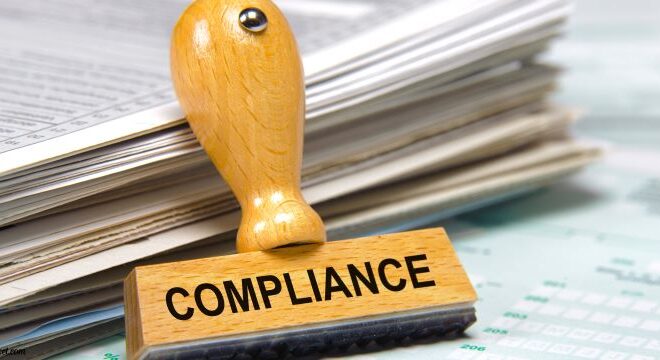
Employee Appreciation Gifts: A Strategic Tool for Fostering a Positive Company Culture
Key Takeaways:
- Recognizing the power of appreciation gifts to enhance employee morale and engagement.
- Exploring the significance of aligning gifts with company values and culture.
- Understanding the impact of varied and personalized gifting on retention and company performance.
- Evaluating the role of appreciation gifts in long-term organizational success.
Table of Contents:
- Introduction to Employee Appreciation
- The Psychology Behind Appreciation Gifts
- Aligning Gifts with Company Culture
- Ideas for Meaningful Appreciation Gifts
- Personalization: The Key to Impactful Gifting
- Timing and Presentation of Appreciation Gifts
- Cost-Effective Solutions for Employee Recognition
- Non-Material Ways of Expressing Gratitude
- Measuring the Effectiveness of Appreciation Gifts
- The Future of Employee Recognition Trends
- Conclusion
Introduction to Employee Appreciation
Employee appreciation has proven to be a fundamental element of workplace contentment and productivity. It’s a strategic approach that honors an individual’s contribution and builds an organization’s collective sense of value. Giving tangible gifts as a token of appreciation is an age-old practice, but it has evolved significantly in employee recognition. It’s not just about giving; it’s about sending a powerful message that the employees are the company’s most valuable asset.
Furthermore, employee appreciation goes beyond material gifts to encompass gestures such as personalized notes, public recognition, and professional growth and development opportunities. These acts of acknowledgment foster loyalty and job satisfaction and contribute to a positive company culture where employees feel valued and motivated to perform at their best. Ultimately, organizations can cultivate a supportive and engaged workforce by prioritizing employee appreciation, leading to increased retention rates and overall success.
The Psychology Behind Appreciation Gifts
Psychological studies have highlighted that employee recognition, as appreciation gifts, caters to the basic human need for recognition and validation. When employees feel acknowledged, their self-esteem and motivation increase substantially. This form of positive reinforcement encourages individuals to continue performing at a high level, instilling a sense of loyalty towards the company.
Aligning Gifts with Company Culture
The most impactful employee appreciation gifts reflect and reinforce the company’s culture and values. When selecting gifts, employers must consider what their organization stands for and how the gifts can embody these principles. For example, a company focusing on sustainability might gift reusable coffee cups or sponsor a tree planting in an employee’s name, thus reinforcing its commitment to the environment. Moreover, aligning gifts with company culture fosters a deeper connection between employees and the organization, demonstrating a genuine understanding and appreciation of their shared values. By incorporating meaningful and purposeful gifts, employers reinforce cultural norms and inspire employees to embody these values in daily work and interactions. Ultimately, this alignment cultivates a cohesive and unified workforce motivated to contribute positively to the company’s mission and objectives.
Ideas for Meaningful Appreciation Gifts
There are many ways to show employees they are appreciated, from public recognition awards to more personalized items. Gifts could include desk plants for a touch of greenery, subscriptions to professional development resources, or a wellness day off to recharge. Corporate gifts should ideally be tailored to the interests and needs of the recipients—think along the lines of custom engraved pens for writers or ergonomic office chairs for those who spend long hours at their desks.
Additionally, integrating cultural elements into gift-giving occasions creates memorable experiences that resonate with employees personally, strengthening their emotional bond with the organization. Such thoughtful gestures can be powerful reminders of the company’s commitment to its employees’ well-being and fulfillment. As a result, employees feel valued and respected, fostering a sense of pride and loyalty beyond their immediate roles within the organization.
Personalization: The Key to Impactful Gifting
Personalization elevates any gift from merely thoughtful to truly meaningful. Customizing gifts—engraving, selecting items based on an individual’s hobbies, or hand-written notes—will resonate with employees. It shows a level of care that goes beyond the corporate norm and can solidify positive sentiments towards the company.
Timing and Presentation of Appreciation Gifts
The when and how of gift-giving are nearly as crucial as the gift itself. Recognizing milestones, work anniversaries, or after completing a significant project commemorates the occasion and reinforces the value of hard work and dedication. The presentation, whether in a company-wide meeting or a one-on-one interaction, adds a layer of recognition that can significantly boost the employee’s valued experience.
Cost-Effective Solutions for Employee Recognition
Appreciation doesn’t have to be expensive. Employers can explore cost-effective strategies like offering additional time off, personalized thank-you emails, or opportunities for career development. Such recognition supports employees’ personal growth and work-life balance, contributing to their satisfaction and fulfillment.
Non-Material Ways of Expressing Gratitude
Gratitude in the workplace goes beyond physical gifts. Verbal praise, public acknowledgments, and opportunities for greater responsibility and growth are valuable ways to express appreciation. These forms of recognition signal trust in an employee’s abilities and an explicit acknowledgment of their contributions to the company’s objectives.
Measuring the Effectiveness of Appreciation Gifts
Companies should track how appreciation gifts influence employee attitude and performance to ensure they hit the mark. Surveys, feedback sessions, and employee engagement levels can provide insights into the effectiveness of an organization’s recognition strategies. The data collected serves as valuable feedback for refining the approach to employee appreciation.
The Future of Employee Recognition Trends
The landscape of employee recognition is constantly changing, with new trends emerging as workplaces evolve. The future points towards an even greater emphasis on personalizing experiences over possessions and using digital platforms to recognize contributions in real time. Companies that stay ahead of these trends will continue to attract, retain, and inspire their workforce.
Conclusion
Employee appreciation gifts are a powerful tool for building a positive company culture. When executed with thoughtfulness and aligned with company values, they can improve morale, elevate productivity, and enhance employee retention. As the workplace continues to evolve, so will the tools and methods of showing appreciation, and companies that adapt will thrive. By employing a regular, varied, and personalized recognition strategy, firms can solidify their status as employers of choice in the eyes of their most valued assets— their employees.



